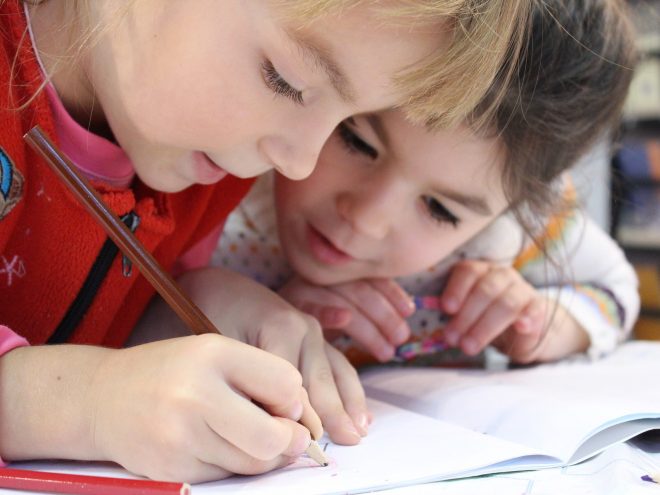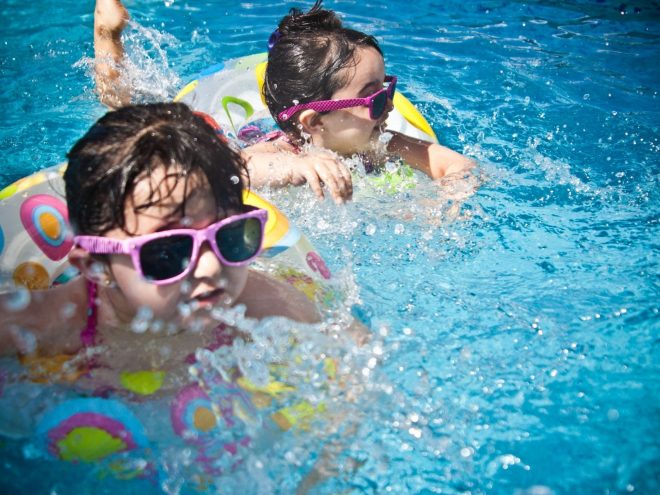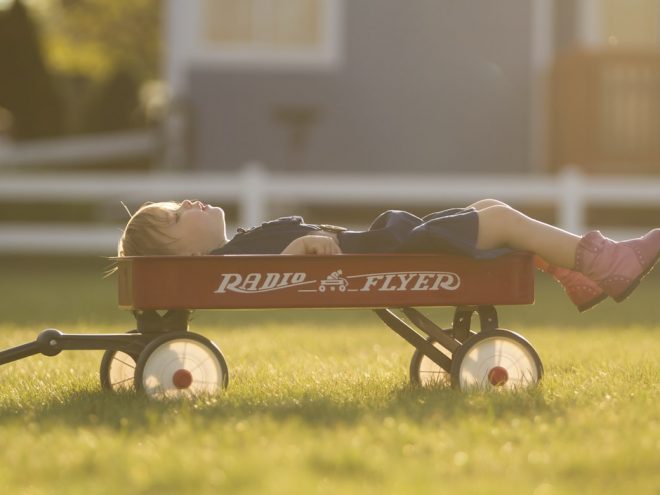Play is vital for your child’s development. It might seem like fun and games, but it’s necessary for kids to grow into healthy young adults. Here are five ways your child benefits from playtime.
1. Physical Health
Play is crucial in keeping your kids healthy because it gets them moving and keeps them active. When children play simple games on the playground like tag, they lower their risk for type 2 diabetes and childhood obesity. The earlier you encourage your child to be healthy, the more likely you’ll see physical activity become a habit in your child’s life.
Help your child get active for 60 minutes every day. While exercise may feel like a chore for some children, try engaging them in play to help them have fun while getting exercise. When kids engage in active play, chances are they won’t even realize they’re engaging their muscles or building their endurance. However, they’re still building healthy habits and staying active.
2. Cognitive Development
Play is a fantastic way for children to boost their cognitive skills. While playing, kids encounter the world around them and explore new environments and outcomes. Young children learn cause and effect relationships through play as they watch how their actions have consequences. For example, what happens when I knock over this tower of blocks?
Boost your child’s cognitive growth by giving them opportunities to engage in unstructured play. Unstructured or free play allows children to lead during playtime. Kids get to choose how to have fun and make the rules when playing games. When you give your child the opportunities for unstructured play, you allow them to explore new concepts and make new connections.
3. Mental Wellness
A perfect outlet for your child’s mental health is playtime. If your child feels anxious or stressed, play can help them process their emotions and self-regulate. With routine playtime, kids have increased self-confidence and self-esteem as engaging in physical activities often brings a feeling of accomplishment. Kids who take play or physical activity to the next level and participate in sports leagues often experience this phenomenon, especially if they strive to beat their records or other teams.
When kids play with their peers, they further develop self-regulation skills or express themselves appropriately. Instead of your child repressing their feelings or lashing out, encourage them to use “I feel” statements to process their thoughts after a crucial game or after a test. Model “I feel” statements and self-regulation at home to help your child understand their big feelings.
4. Creative Expression
Foster your child’s creativity by giving them plenty of opportunities to play. Imagination is a crucial developmental component for children as it supports knowledge retrieval. Support your child through creative play. Here’s how:
Take Your Kid Outside: Going outdoors to play can stimulate your child’s imagination. Whether you’re at your local playground or in your backyard, your kid’s imagination will soar. When kids go outside, they’re more likely to engage in unstructured play, helping them with problem-solving and other cognitive skills.
Offer Art Opportunities: Give your kid a chance to flex their art skills. Provide art and craft supplies and let them create their own projects, expressing their inner artist.
When you provide these opportunities, you’ll be amazed to watch how your child’s creativity will soar.
5. Social Growth
Playtime has the potential to teach children a myriad of social skills. When engaging in social play with peers, kids learn to negotiate, empathize, compromise and stand up for themselves. They also keenly observe social cues and listen to one another as they watch one another’s perspectives, which eventually leads to empathy.
Try these activities with your kid to help build their social skills and empathy:
Imaginative Stuffed Animals: Because stuffed animals are an essential part of any kid’s life, they can be the perfect gateway for teaching social cues. To start, grab your child’s favorite stuffed animal and ask, “can we play?” Then offer a challenge: “I’m sad my team lost the game today.” Or, “I wish I didn’t get a low score on my test.”
Give your child a chance to respond to the social cue. They will likely try to comfort their stuffed animal, showing empathy.
Playing House: Ask your kid to play house or family, where everyone playing is given a specific role. Let them be creative. If they want to be a parent, encourage them to take over to see what the part is like. You can be the toddler instead. They take on another perspective and think in that mindset, which is crucial to fostering empathy.
Get Playing Today
Playtime is vital for your kid to develop into a healthy adult. Establish the habit when they’re young–get them active for 60 minutes every day. You’ll see a dramatic benefit in their physical and mental wellness, cognitive, social and creative growth.





